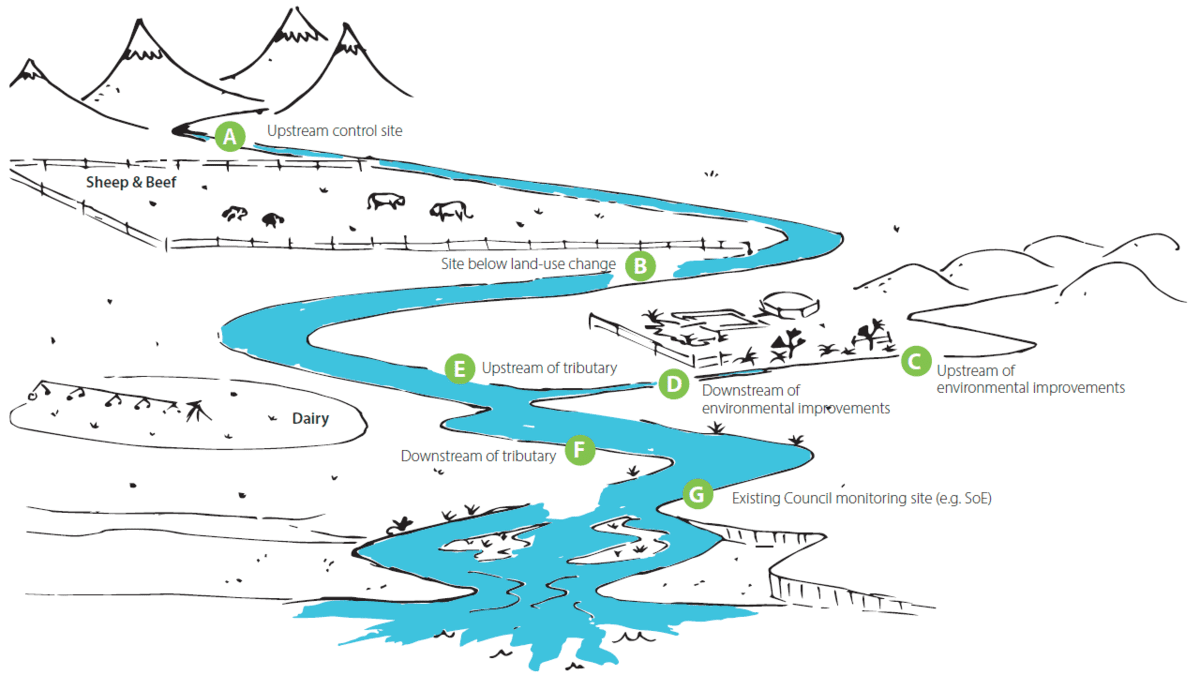Monitoring the effects of farm environmental improvements on river health
The Cawthron Institute, with funding from Thriving Southland, have created a toolkit for monitoring the effects of farm environmental improvements on river health at the catchment-scale.
This toolkit enables catchment groups, with the help of rural professionals, to set up their own freshwater monitoring programmes. By implementing catchment-scale monitoring, land managers can assess the state of their catchment’s freshwater environment at space and time scales that are relevant to whole farms and whole streams. The methods endorsed are all compatible with monitoring methods currently used by Regional Councils and other agencies with water management responsibilities (e.g. DOC). This means that any data created using this toolkit will be compatible and complimentary to these agencies should land managers choose to share it.
The framework is set out in two documents. The first contains a comprehensive and detailed river health monitoring programme for catchment groups (Cawthron Report no. 3681).
The second ‘Getting Started: Ecosystem Health Monitoring for Catchment Groups’ (Cawthron report no. 3704), outlines a scaled-back monitoring programme for catchment groups that are new to freshwater monitoring.
These two reports detail the steps required to lead a successful monitoring project by a catchment group. To the right is a schematic of a potential long-term catchment monitoring programme design in a small to medium-sized river.
The other two resources we have supplied are a river habitat assessment field recording sheet and a guide for taking macroinvertebrate (stream bugs) samples using a ‘Surber sampler’. Using these resources alongside the framework outlined in the documents above provides land managers with what we believe is the simplest monitoring programme that can still provide meaningful results based on just two measurement parameters.

Image: Cawthron Institute. Catchment monitoring example.
Robin Holmes
Team Leader – River and Lake Ecology

Calum MacNeil
Freshwater ecologist
